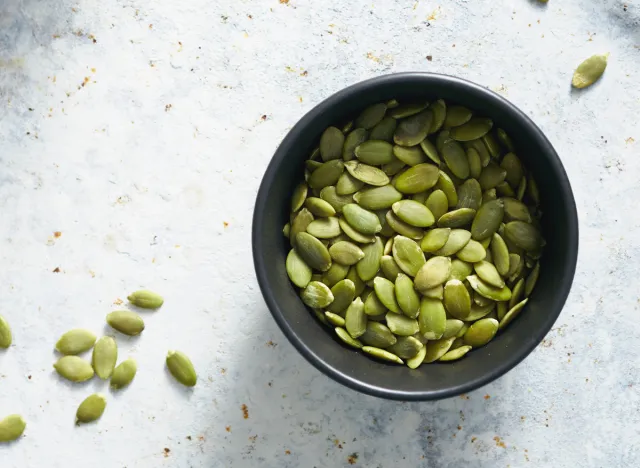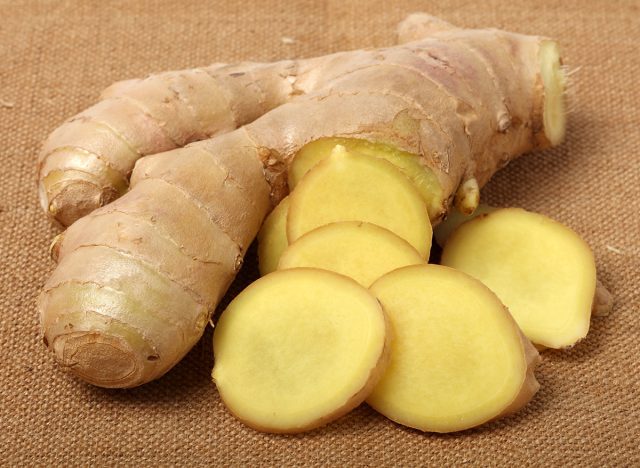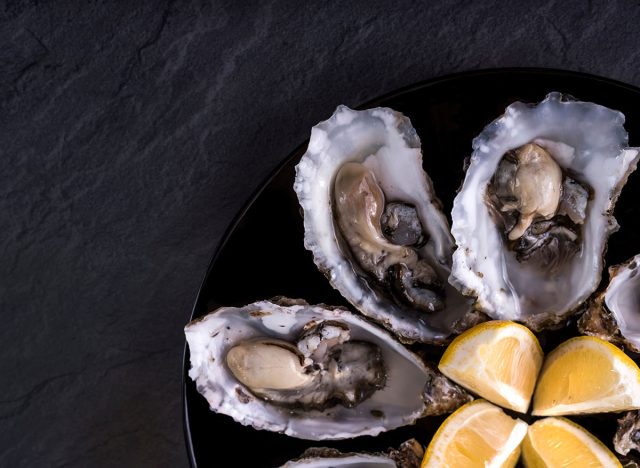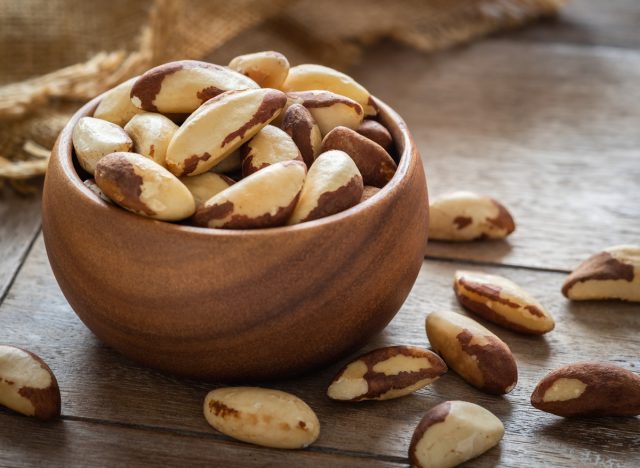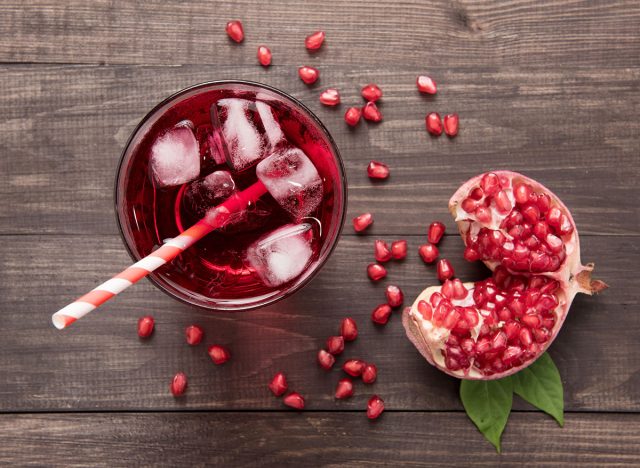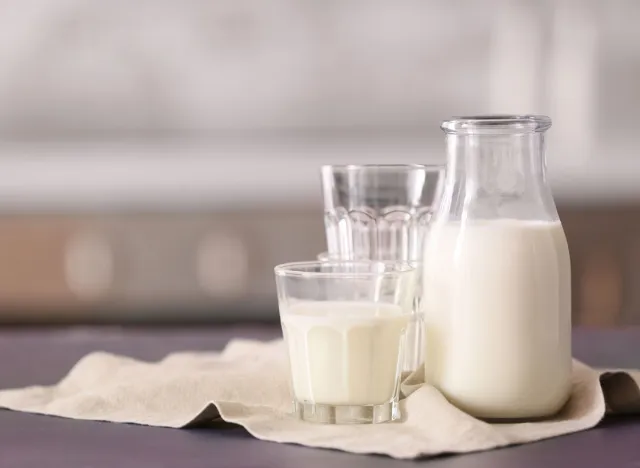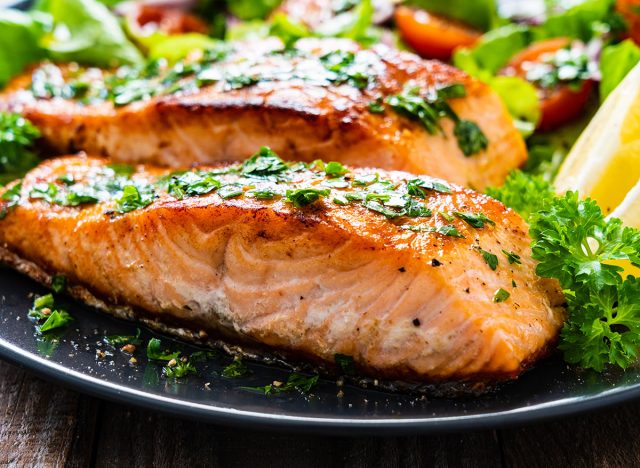Reducing inflammation is a buzzy goal that health influencers and health care professionals alike encourage people to do. No matter whether you are struggling with low-grade chronic inflammation or acute inflammation, finding ways to combat these effects can offer some major benefits.
Unlike acute inflammation, which is the body's immediate response to an injury, infection, or tissue damage, chronic low-grade inflammation can be a result of many factors, including following an unhealthy lifestyle. While acute inflammation is helpful in the healing process, chronic low-grade inflammation can lead to a person experiencing some unsavory effects, including an elevated risk of developing diabetes, cardiovascular disease, and certain cancers.
Needless to say, many people are focused on combatting chronic low-grade inflammation to support their overall health. Along with adopting certain habits that may combat chronic low-grade inflammation, like following an anti-inflammatory diet, managing stress, and limiting alcohol intake, people may lean on certain supplements to help accomplish this goal.
If you are keen on reducing the inflammation in your body and you are wondering which supplements are worth considering to help accomplish this fete, keep reading to learn ten options that dietitians recommend for inflammation reduction.
Quercetin
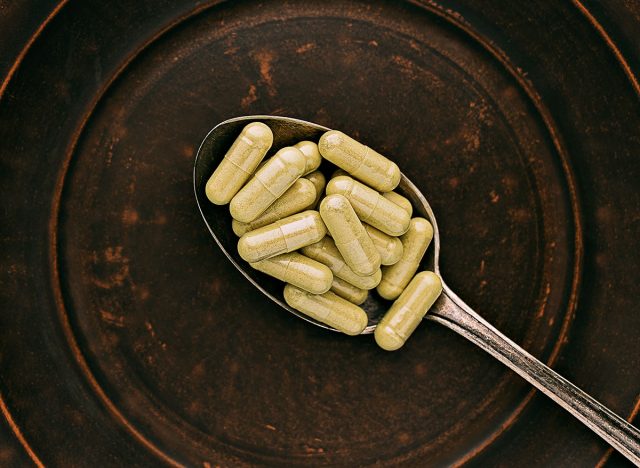
"Quercetin is one of my favorite anti-inflammatory supplements, especially for people who struggle with inflammation from allergies and asthma," Melissa Azzaro, RDN, LD, creator of The Hormone Dietitian® LLC, shares. "Quercetin is a compound found in plants like onions and apples, and it is an antioxidant, anti-inflammatory, and immune modulator. Studies have shown that quercetin blocks histamine production, which helps [manage] allergy symptoms."
Azzaro likes , as the nettles provide even more anti-inflammatory benefits.
Resveratrol
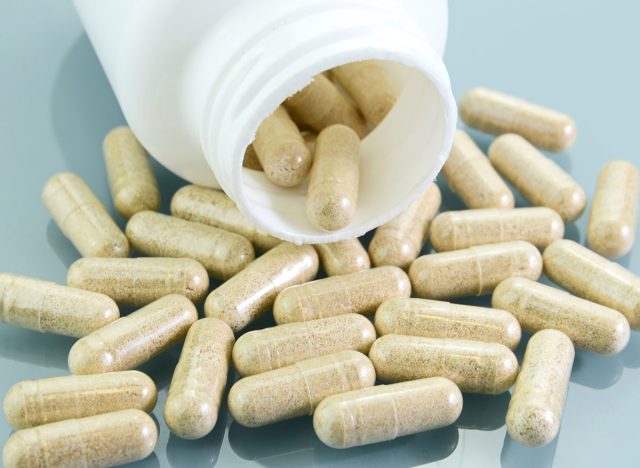
"Resveratrol is a compound found mainly in red grapes and berries that has anti-inflammatory, antioxidant, and cardio protective effects," Azzaro explains, adding that it also helps your body metabolize estrogen and calm uterine contractions. Azzaro likes to recommend "resveratrol for those dealing with painful period cramps, endometriosis, and fibroids," especially for those who will benefit from the anti-inflammatory effects this ingredient provides.
Azzaro recommends Gaia Resveratrol as a quality supplement option.
Boswellia
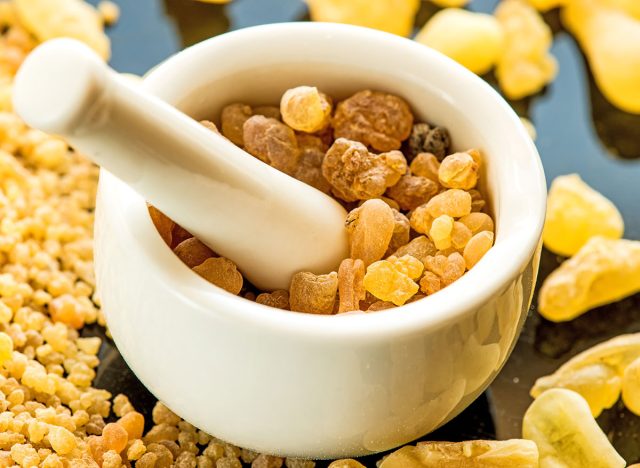
Azzaro reserves Boswellia for those that are "dealing with inflammation coming from inflammatory gut conditions," but it is worth mentioning as a supplement that may offer anti-inflammatory benefits in general. Azzaro explains that "Boswellia comes from trees known commonly as frankincense, and studies have shown that this ingredient has anti-inflammatory effects for those with inflammatory bowel disease, asthma, and rheumatoid arthritis."
Azzaro likes Pure Encapsulations Boswellia.
Turmeric
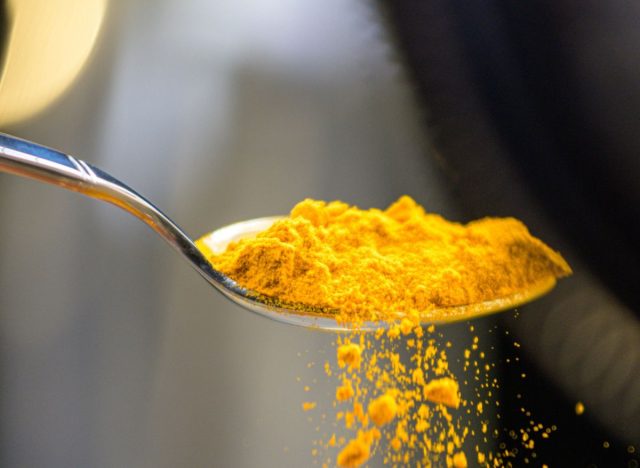
"Curcumin, the active ingredient in turmeric, has anti-inflammatory properties, and turmeric supplements may improve symptoms for people with inflammatory conditions such as inflammatory bowel disease and both osteoarthritis and rheumatoid arthritis," Sarah Anzlovar, MS, RDN, LDN, Intuitive Eating Dietitian for Moms at Sarah Gold Nutrition, LLC, shared. One study even showed that it reduced joint pain as well as acetaminophen.
And while Anzlovar recommends "focusing on reducing inflammation through diet and lifestyle habits first, turmeric supplements may help."
Her go-to is Thorne Phytosome because "it's formulated with a well-studied form of curcumin that has shown to offer benefits like reducing joint pain," she shares.
Vitamin D
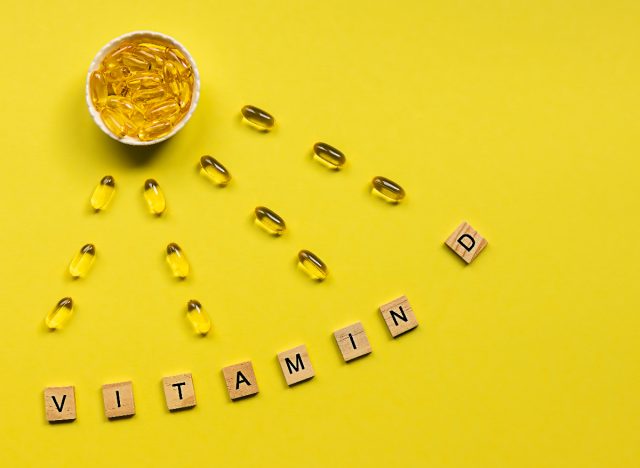
Vitamin D may be thought of as a bone health-supporting supplement. But this supplement may also help combat low-grade chronic inflammation too.
"Vitamin D plays many important roles in the body, including regulating inflammation and immune function," Wan Na Chun, MPH, RD, CPT, registered dietitian, says. She adds that "there is considerable evidence that vitamin D has a variety of effects on immune system function, which may enhance innate immunity and inhibit the development of autoimmunity."
Omega-3 fatty acids
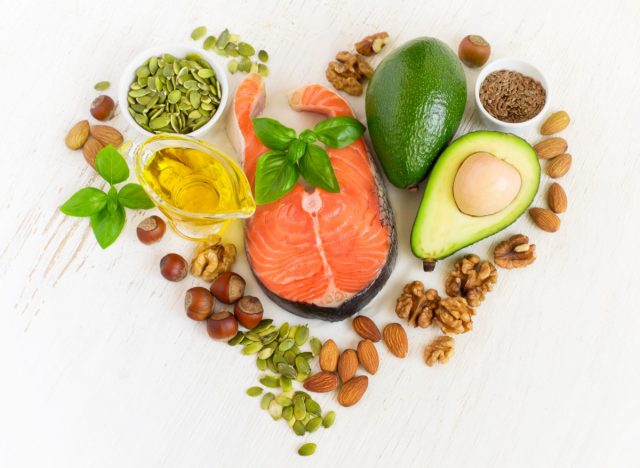
"Omega-3 fatty acid intake has been linked to lower inflammation and reduced risk of inflammatory diseases like cardiovascular disease," Anzlovar shares. "While it's best to get your omega-3s from food like fatty fish, if you don't eat fish, a supplement may be a good option," she added.
While there are various fats that fall under the omega-3 umbrella, DHA and EPA are two that get a lot of focus for their anti-inflammatory benefits are EPA and DHA, which are found in marine sources, like oily cold-water fish.
Anzlovar leans on Nordic Naturals Ultimate Omega as a supplement-of-choice because "it has a mix of both EPA and DHA omega 3s, and it is third party tested."
Tart Cherry
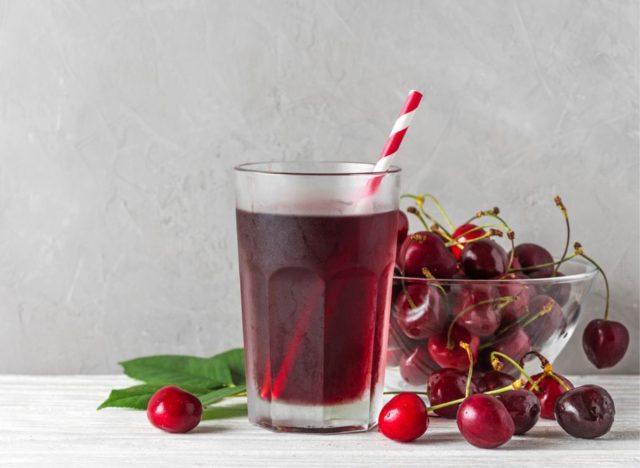
Tart cherry may be best known as a sleepy time aid. But it may also help manage inflammation, particularly among older adults.
Solaray Ultra Strength Joint InflaShield as a great supplement for inflammation relief, formulated with Tart Cherry and Resveratrol for their antioxidant properties, Glucosamine and MSM for targeted joint support, and IbuActin to supporting everyday body comfort.
Ginger
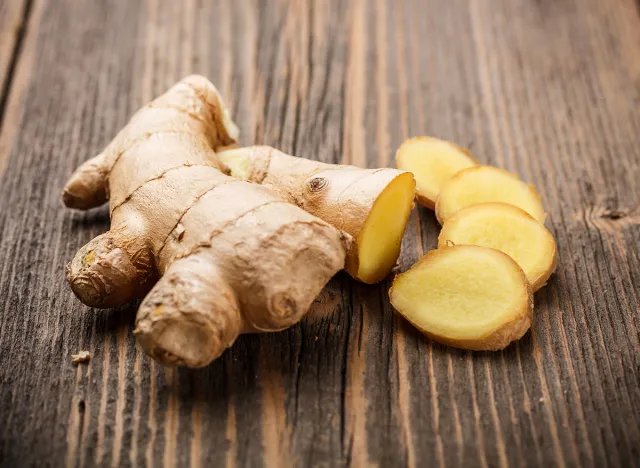
Ginger root is a popular addition to many dishes. But including it in a balanced diet may help combat inflammation in certain situations. Ginger contains two compounds, gingerol and zingerone, that may impact inflammation reduction efforts. NOW Foods Ginger Root Extract is a clean and trustworthy ginger supplement that can be taken every day.
Green Tea Extract
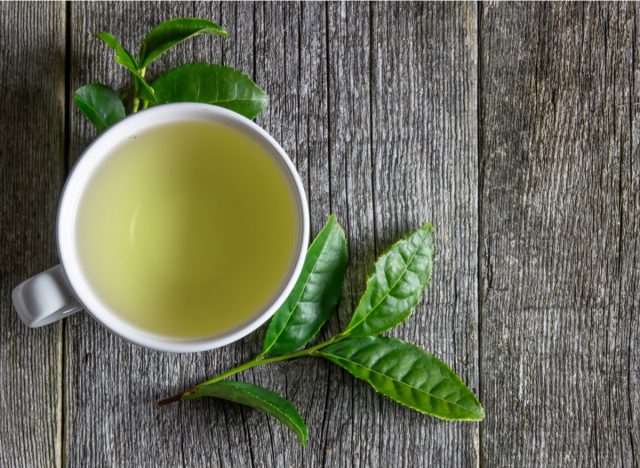
Green tea is known to have anti inflammatory effects, in part, thanks to a compound called EGCG that it naturally contains. Green tea is also a source of a plant compound called flavan-3-ols, which has been shown to reduce oxidative stress.
Life Extension Mega Green Tea Extract is packed with beneficial compounds naturally found in green tea and is a nice option for people who can't find the time to make a spot of tea every day.
